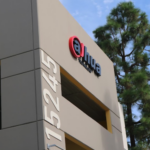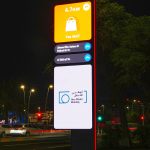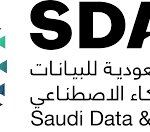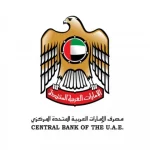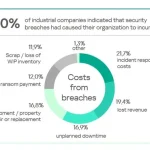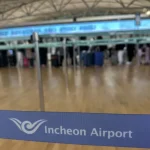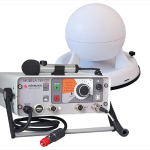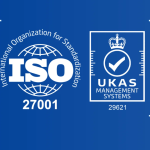From K-Pop to K-Security: Korea’s Global Footprint Expands in Security Industry

By Mahir Hodžić
A country known for its hi-tech, cinema, and music, South Korea’s international influence now extends to the security industry, as evidenced by the impact of the latest SECON 2024
SECON 2024, held from March 20-22 in Seoul, emerged as South Korea’s premier security exhibition. Since its inception, it has made significant strides not only in the local market but also beyond the borders of Korea, impacting the global security industry. As the 23rd edition of SECON and the 12th year of eGISEC, the event provided a rare opportunity for stakeholders to converge physical and cyber security solutions under one roof.
Bridging Borders, Securing Tomorrow
With 396 exhibitors from 13 countries and 25,763 visitors from 30 countries, occupying 28,000 square meters of exhibition space, SECON 2024 showcased its prominence in the security industry. Featuring 1479 booths and over 100 sessions across 25 tracks, the event provided a comprehensive platform for knowledge exchange and networking.
The focus of this year’s SECON edition was “Safer World with AI”. In addition to featuring physical security products like CCTV, access control, and biometrics, as well as infrared sensors such as PIR and PID for social security, the exhibition offered a diverse range of security solutions for both online and offline use. This included antivirus software designed to combat various hacking and cybercrime scenarios, including ransomware attacks, along with EDR, NDR, and XDR systems capable of addressing endpoint and network security threats in a cohesive manner. Moreover, cloud security and AI-powered security solutions were highlighted, providing a comprehensive suite of security options for various applications, both online and offline.
Finally, match-making programs facilitated connections between buyers and vendors, while special booths catered to diverse themes like online business platforms and security job fairs.
As such, it’s no wonder that SECON 2024 attracted attention not only from local stakeholders but also from global players. With its global reach and comprehensive coverage of security solutions, SECON 2024 played a pivotal role in bolstering the Korean security market. As this market is known for the impact that transcends the geographical borders of Korea, it’s worth exploring it as a harbinger of the trends that will shape the future of security on a global scale.
Korea’s Security Sector Soars
The security market in South Korea is experiencing robust growth, fueled by technological advancements and increasing awareness of cybersecurity threats. With AI technologies taking center stage, experts anticipate a steady expansion in both the physical and cyber security segments. During the pandemic, South Korea experienced a significant shift in its digital environment, driven by the widespread adoption of remote work solutions and digital transformation. This transition has accelerated the country’s journey toward AI transformation, leading to rapid growth in the security industry as a whole.
The numbers more than corroborate this: in 2023, Korea’s physical security market grew by 4.3% to $4.5 billion and is expected to further increase by 3.5% to $4.7 billion in 2024. Similarly, the cyber security market expanded by 5.8% in 2023 to $2.4 billion, with a projected growth of 4.4% to $2.6 billion in 2024.
Consequently, South Korea’s security industry surpassed $7 billion in 2023, with an anticipated outcome of $7.3 billion in the current year, maintaining a steady growth trajectory.
With an expected annual growth rate (CAGR) from 2024-2028 of 11.76%, the projected market volume should reach US$1.9 billion by 2028. In terms of demand, the country’s security market is witnessing a surge in demand for advanced biometric authentication systems. Driven by technological advancements and local trends, South Korea places significant emphasis on cybersecurity to protect its digital infrastructure. As a leading player in industries like electronics and information technology, South Korea prioritizes cutting-edge solutions in the sectors that are closely related to the security industry. For instance, the average revenue per installed smart home in South Korea is estimated to be US$168.90.
Government Initiatives Propel Korea’s Security Industry
The Korean government has demonstrated its commitment to fostering the security industry as a cornerstone of national economic development. Recently, the government unveiled plans to promote physical security as one of the next-generation industries, aligning with its broader strategy to enhance global competitiveness in the information security sector. Designating cybersecurity as one of the 12 national strategic technologies, the government has laid out a roadmap focusing on data security, AI integration, digital vulnerability analysis, network security, cloud security, and industrial convergence security technologies.
By supporting R&D efforts, fostering collaboration between public and private entities, and providing incentives for innovation, the government aims to sustain the high growth trends observed in the domestic security market, exceeding an average annual growth rate of 12.8% over the past three years.
Leading Companies and Innovations
 South Korea boasts a robust ecosystem of security companies, with industry giants such as Hanwha Vision, IDIS, and Suprema leading the charge. Hanwha Vision leverages world-class imaging technology to provide comprehensive security solutions for various sectors, including access control and intruder detection. Similarly, IDIS stands out as a global leader in digital surveillance solutions, with a presence in over 50 countries and a reputation for innovation and quality. Suprema, renowned for its AI-based security solutions, has also secured significant projects worldwide. These companies exemplify South Korea’s prowess in developing cutting-edge security technologies and driving innovation on a global scale.
South Korea boasts a robust ecosystem of security companies, with industry giants such as Hanwha Vision, IDIS, and Suprema leading the charge. Hanwha Vision leverages world-class imaging technology to provide comprehensive security solutions for various sectors, including access control and intruder detection. Similarly, IDIS stands out as a global leader in digital surveillance solutions, with a presence in over 50 countries and a reputation for innovation and quality. Suprema, renowned for its AI-based security solutions, has also secured significant projects worldwide. These companies exemplify South Korea’s prowess in developing cutting-edge security technologies and driving innovation on a global scale.
Korean Security Ventures into the Middle East
Korean security companies are expanding their footprint in the Middle East, capitalizing on the region’s burgeoning market and demand for advanced security solutions. For instance, Suprema secured a significant project in Neom, Saudi Arabia, supplying access control solutions for the construction of Neom Hospital. Additionally, Korean cybersecurity startup SecuLetter signed a partnership agreement with Best IT, a cybersecurity consulting and solution provider in Saudi Arabia. This collaboration underscores the growing collaboration between Korean and Middle Eastern companies in addressing cybersecurity challenges and deploying state-of-the-art security solutions. As the Middle East emerges as a key market for security technologies, Korean companies are poised to play a pivotal role in shaping its security landscape and addressing evolving threats.
Looking ahead
The upcoming SECON event, SECON 2025, scheduled for March 19-21, 2025, at the Kintex Center in Seoul, South Korea, will build upon the success of its predecessors. Given the success of the latest event, it is evident that these exhibitions will serve as key platforms for industry stakeholders to strategize their growth and innovation plans. With a focus on ensuring safety and security beyond the borders of South Korea, the next SECON is primed to continue shaping the trajectory of the security industry, both domestically and internationally.






